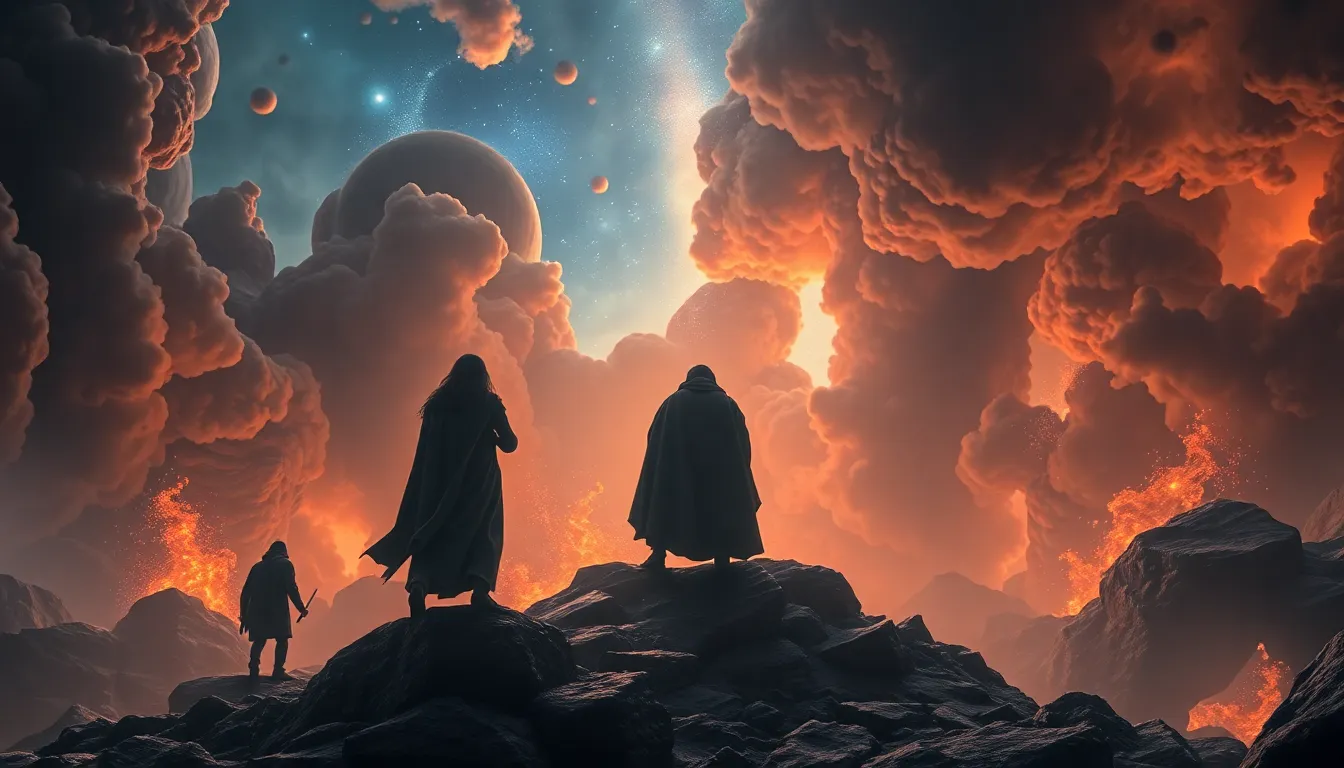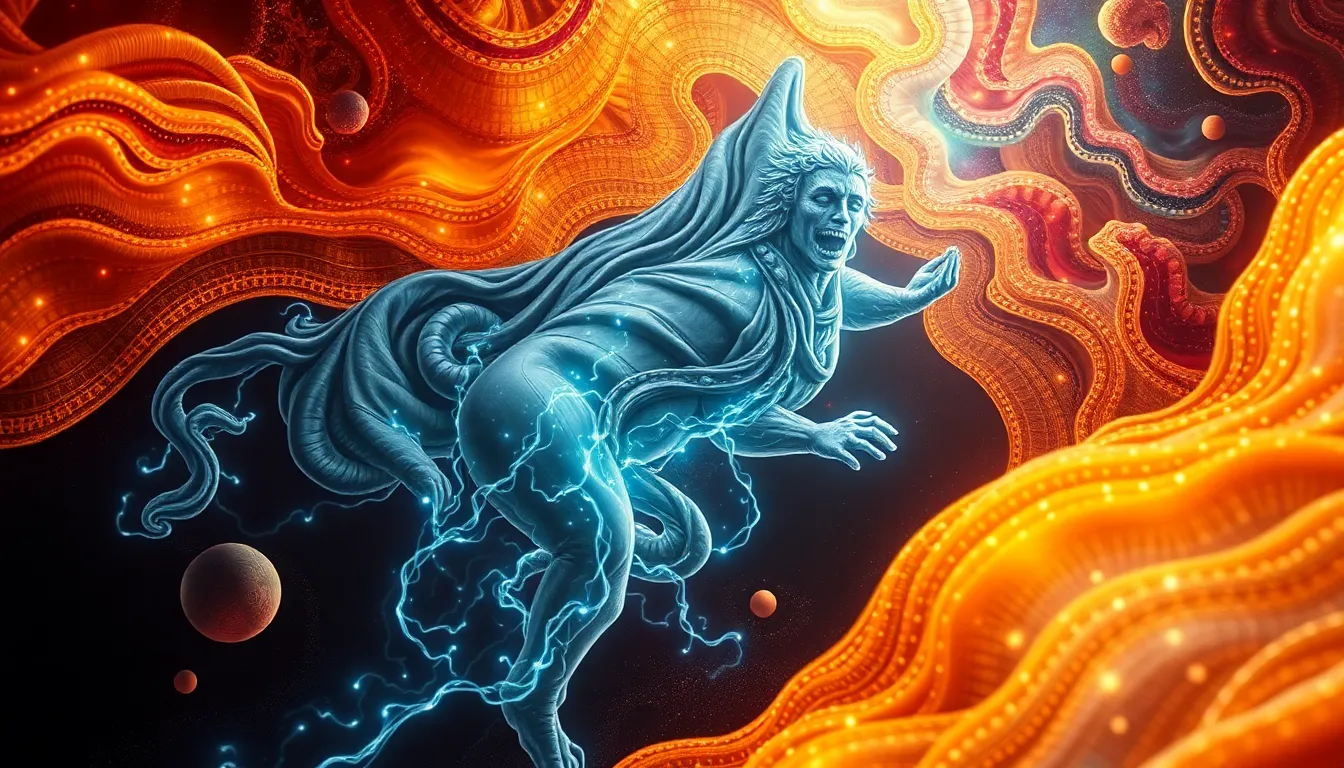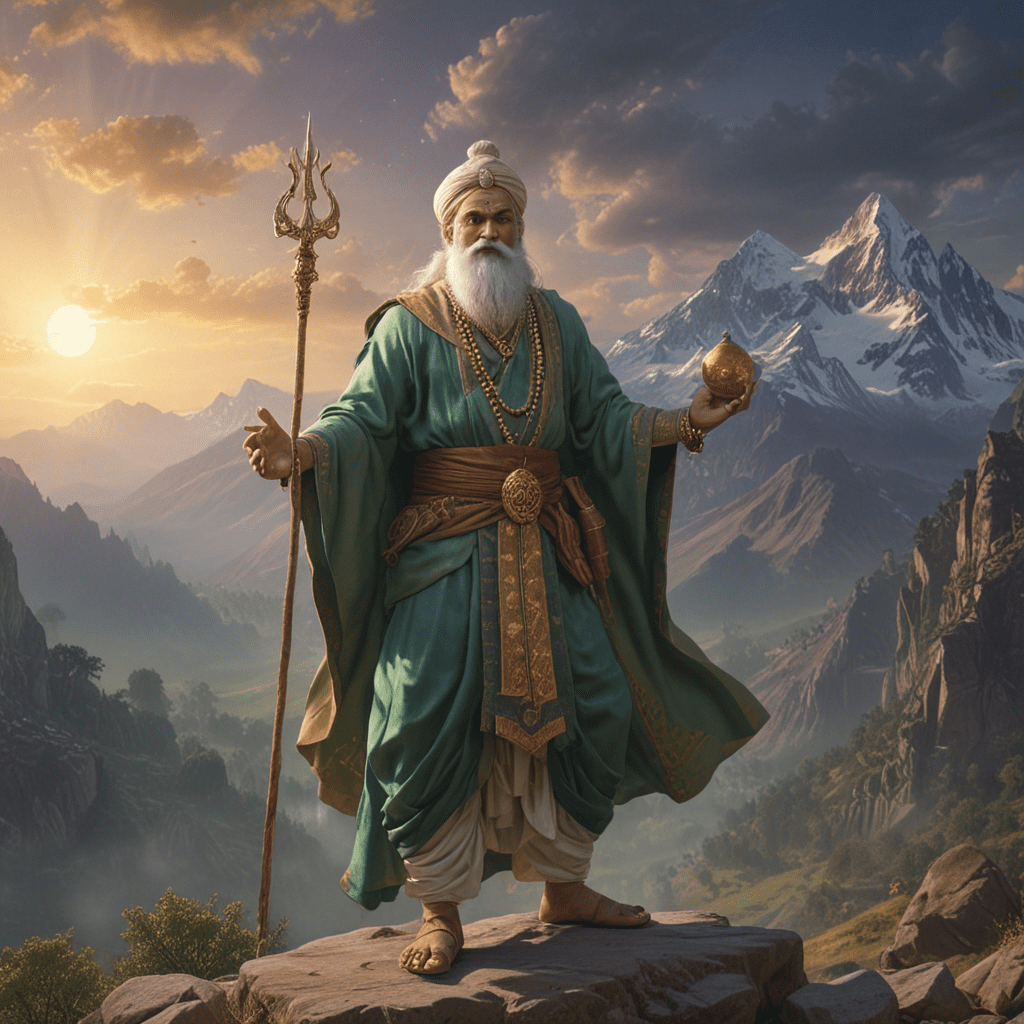The Mythical Journey: How Creation Stories Reflect Our Lives
Introduction: The Power of Creation Stories
Creation stories, or myths, are narratives that explain the origins of the world, humanity, and the cultures that inhabit it. Found in virtually every society, these stories serve as foundational texts that provide insight into the beliefs, values, and identities of various peoples. From the ancient Egyptians to Indigenous tribes of North America, creation myths are powerful tools for understanding not only how we came to be but also how we perceive our place in the universe.
The significance of these narratives extends beyond mere entertainment; they are a means of communicating profound truths about existence, morality, and the human experience. They bridge the gap between the sacred and the mundane, offering lessons that resonate through time.
The Structure of Creation Myths
Despite the vast diversity of creation stories, many share common elements and themes. These narratives often follow a similar structure, which includes:
- Chaos and Order: Many myths begin in a state of chaos, which is then transformed into an ordered universe.
- Conflict and Resolution: Central to many stories is a conflict—often between primal forces or deities—that leads to the creation of the world as we know it.
- Creation of Life: Most myths culminate in the creation of life, including humans, and often describe the relationship between the created and the creator.
This structure highlights the narrative arc of struggle and triumph, mirroring the human experience of overcoming adversity and finding purpose.
Cultural Variations: A Global Perspective
Creation stories vary widely across different cultures, reflecting unique historical contexts and societal values. Some notable examples include:
- Indigenous Myths: Many Indigenous cultures have rich oral traditions that describe the interconnectedness of all living things. For example, Native American creation stories often emphasize the role of animals and the Earth in the creation process.
- African Myths: African creation myths often feature a supreme being who creates the world through a series of acts, highlighting themes of community and kinship.
- Asian Myths: In cultures such as Hinduism, the universe is cyclically created and destroyed, reflecting a belief in rebirth and the eternal nature of existence.
- Western Myths: Judeo-Christian narratives, such as the Genesis creation story, emphasize a singular act of creation by a monotheistic deity, establishing a framework for morality and human purpose.
While these stories differ in characters and plots, they often share underlying themes of creation, conflict, and man’s relationship with the divine.
Creation Myths as Mirrors of Society
Creation stories serve as mirrors reflecting the values, beliefs, and norms of the societies from which they originate. They address core societal issues, such as:
- Gender Roles: Many myths explore the roles of men and women, revealing societal attitudes towards gender and power.
- Environmental Relationships: Myths often illustrate the relationship between humans and nature, emphasizing stewardship or exploitation.
- Morality and Ethics: Creation stories frequently incorporate moral lessons, shaping the ethical frameworks of cultures.
By analyzing these elements, we gain insight into the collective consciousness of a society and its priorities.
Psychological Insights: The Human Experience
Psychologists, particularly Carl Jung, have posited that myths resonate with archetypal patterns embedded in the human psyche. Creation stories often embody these archetypes, serving as a means for individuals to connect with their inner selves. Some key insights include:
- Jungian Archetypes: Characters such as the Hero, the Mother, and the Wise Old Man appear across cultures, representing universal human experiences and struggles.
- Collective Unconscious: Myths tap into the collective unconscious, allowing individuals to find meaning in their personal experiences through shared narratives.
This connection between myth and psychology emphasizes the role of storytelling in understanding our identities and navigating life’s challenges.
The Role of Nature and the Environment in Creation Stories
Creation myths often reflect the relationship between humanity and the natural world, revealing how cultures perceive and interact with their environment. Key themes include:
- Nature as a Creation Force: Many myths depict nature as a powerful force in the creation process, emphasizing respect for the Earth.
- Ecological Awareness: Stories that highlight the harmony between humans and nature often inspire environmental stewardship and responsibility.
These narratives can shape cultural identities and influence environmental ethics, reminding us of our interconnectedness with the planet.
Rituals and Traditions: Living the Myth
Creation stories play a crucial role in shaping rituals, festivals, and traditions within cultures. They serve as the foundation for communal practices that reinforce identity and continuity. For example:
- Rituals: Many cultures hold rituals that reenact creation stories, fostering a sense of belonging and connection to heritage.
- Festivals: Celebrations often center around significant creation events, integrating myth into daily life and community bonding.
Storytelling becomes a vital component of these practices, ensuring that cultural narratives are passed down through generations.
Modern Interpretations of Creation Myths
In contemporary times, artists, writers, and filmmakers reinterpret creation stories, infusing them with modern relevance. These adaptations can address current issues such as:
- Environmental Crises: Many modern retellings focus on ecological themes, urging society to reconsider its relationship with nature.
- Social Justice: New interpretations often highlight themes of equality and justice, reflecting contemporary societal struggles.
These reinterpretations illustrate the enduring relevance of ancient narratives and their capacity to inspire change today.
Creation Stories in Personal Narratives
Beyond cultural narratives, personal creation stories shape individual identities and life journeys. Each person has a unique narrative that influences their beliefs and choices. Encouraging readers to reflect on their own stories can foster self-awareness and growth. Consider the following:
- Life Events: Significant experiences often act as ‘creation moments’ that redefine our paths.
- Identity Formation: Personal narratives contribute to our understanding of who we are and where we fit in the world.
By engaging with our personal myths, we can gain deeper insights into our motivations and aspirations.
Conclusion: The Enduring Legacy of Creation Myths
Creation stories are not just relics of the past; they are vital narratives that help us understand our lives and the world around us. They provide a framework for exploring our values, fears, and aspirations. As we navigate an increasingly complex world, it is essential to engage with our cultural narratives and myths, allowing them to guide us in personal and collective journeys.
We encourage readers to delve into their own creation stories, reflect on their significance, and embrace the wisdom they offer for living authentically in today’s world.



